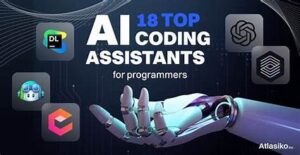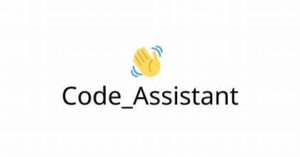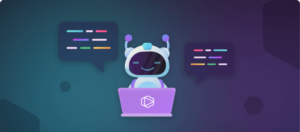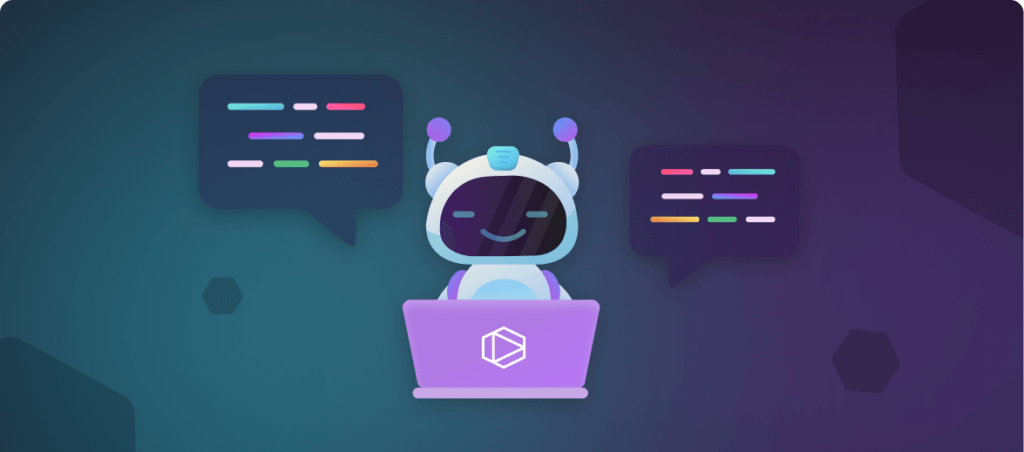
In the fast-evolving world of technology, the role of artificial intelligence (AI) in software development has become increasingly pivotal. Among the many innovations AI brings to the table, AI Code Assistants are emerging as a transformative force. These intelligent tools not only streamline the coding process but also enhance productivity and code quality. This comprehensive guide explores the significance of AI Code Assistants, their features, and the future of AI-driven coding tools.
What is an AI Code Assistant?
An AI Code Assistant is a software tool that leverages artificial intelligence to assist developers in writing, debugging, and optimizing code. These tools use machine learning algorithms and natural language processing to understand coding patterns, suggest improvements, and even generate code snippets based on user input.
The Rise of AI Code Assistants
The demand for AI Code Assistants has surged due to several factors:
- Increasing Complexity of Codebases: Modern software projects are often large and complex, making manual code management challenging. AI Code Assistants help manage this complexity by providing intelligent suggestions and automating repetitive tasks.
- Shortage of Skilled Developers: The tech industry faces a significant shortage of skilled developers. AI Code Assistants can bridge this gap by aiding less experienced developers and increasing overall efficiency.
- Growing Importance of Speed: In a competitive market, speed is crucial. AI Code Assistants accelerate the development process by offering real-time suggestions and reducing debugging time.
Key Features of AI Code Assistants
- Code Autocompletion: One of the most basic yet powerful features, autocompletion suggests code snippets and methods based on the context. This reduces the likelihood of syntax errors and speeds up the coding process.
- Intelligent Code Suggestions: AI Code Assistants analyze the code and offer suggestions for improvements, such as more efficient algorithms or better coding practices. This helps developers write cleaner and more efficient code.
- Error Detection and Debugging: These tools can identify bugs and potential issues in the code before it runs. They provide insights into what might go wrong and suggest fixes, reducing debugging time significantly.
- Code Generation: Advanced AI Code Assistants can generate code based on high-level descriptions or requirements. This feature is particularly useful for automating repetitive tasks or generating boilerplate code.
- Contextual Help and Documentation: AI Code Assistants often come with integrated documentation and contextual help. They can provide explanations for code snippets and suggest relevant documentation, making it easier for developers to understand and use different libraries or frameworks.
- Integration with Development Environments: Most AI Code Assistants integrate seamlessly with popular Integrated Development Environments (IDEs) like Visual Studio Code, IntelliJ IDEA, and others. This ensures that developers can use these tools within their existing workflow.
Benefits of Using AI Code Assistants
- Increased Productivity: By automating repetitive tasks and providing intelligent suggestions, AI Code Assistants help developers write code faster and with fewer errors. This leads to increased productivity and shorter development cycles.
- Enhanced Code Quality: With features like intelligent code suggestions and error detection, AI Code Assistants help improve the overall quality of the code. They promote best practices and reduce the likelihood of bugs and vulnerabilities.
- Skill Development: For less experienced developers, AI Code Assistants serve as a learning tool. They provide real-time feedback and suggestions, helping users learn coding best practices and improve their skills.
- Reduced Debugging Time: The ability to detect and fix errors before running the code significantly reduces debugging time. This allows developers to focus more on developing new features rather than fixing issues.
- Cost Savings: By increasing efficiency and reducing the need for extensive debugging, AI Code Assistants can lead to cost savings for software development projects. They help optimize resource allocation and streamline workflows.
Challenges and Considerations
While AI Code Assistants offer numerous benefits, there are also challenges to consider:
- Accuracy and Reliability: The accuracy of AI Code Assistants depends on the quality of the underlying algorithms and data. It’s crucial to evaluate these tools and ensure they meet the required standards for accuracy and reliability.
- Learning Curve: Some AI Code Assistants may have a learning curve, especially for developers unfamiliar with AI tools. Proper training and documentation can help mitigate this challenge.
- Data Privacy: Since AI Code Assistants often analyze code, there may be concerns about data privacy and security. It’s essential to choose tools that adhere to strict data protection standards.
- Over-Reliance: There is a risk of developers becoming over-reliant on AI Code Assistants, potentially leading to a lack of understanding of underlying coding principles. Balancing the use of these tools with manual coding practice is important.
Future Trends in AI Code Assistants
The future of AI Code Assistants looks promising, with several emerging trends:
- Increased Personalization: Future AI Code Assistants are expected to offer more personalized suggestions based on individual coding styles and preferences. This will further enhance productivity and code quality.
- Integration with Other AI Tools: AI Code Assistants may integrate with other AI-driven tools, such as project management and testing tools, to provide a more comprehensive development experience.
- Advanced Code Generation: As AI technology advances, AI Code Assistants may become more proficient in generating complex code structures and handling more diverse coding tasks.
- Greater Contextual Understanding: Future AI Code Assistants will likely have a better understanding of the context in which code is written, allowing for more accurate and relevant suggestions.
- Enhanced Collaboration Features: AI Code Assistants may incorporate features that facilitate collaboration among team members, such as code reviews and real-time feedback.
Conclusion
AI Code Assistants are revolutionizing software development by enhancing productivity, improving code quality, and reducing debugging time. While there are challenges to consider, the benefits far outweigh the drawbacks. As technology continues to evolve, AI Code Assistants will play an increasingly crucial role in shaping the future of coding. Embracing these tools can lead to more efficient development processes, better code, and a more streamlined workflow



